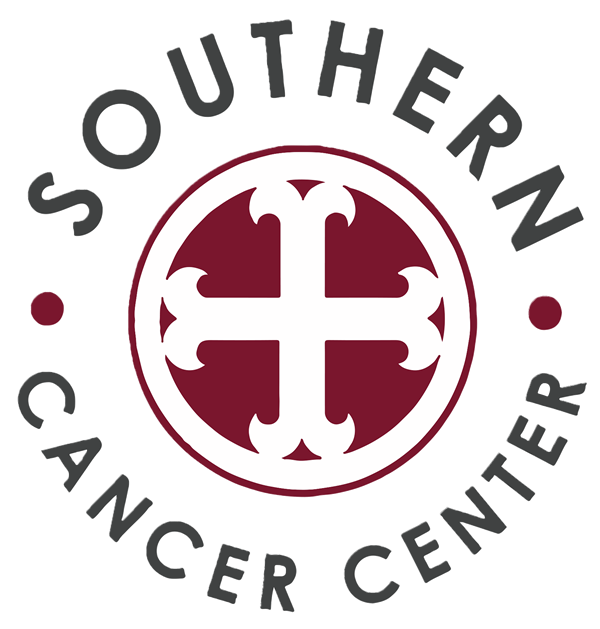Who knew that 2020 would throw this wrench into our world, disturbing our lives and daily routines? We’ve been forced to evolve during unprecedented times, adapt to unforeseen changes; and all at a very fast, unexpected rate due to the COVID-19 pandemic.
Although many things have been put on hold, the physicians of Southern Cancer Center don’t want your health to be one of them. Delaying routine screenings, such as mammograms and colonoscopies, can have a negative impact on your health. The fact remains, most cancer is treatable when caught early… the fact also remains, cancer doesn’t stop just because there’s a pandemic.
A recent study showed that in March 2020, screening rates for breast, colon and cervical cancers saw a significant drop, as much as 95% from the previous year[1]. We can attribute this pause in screenings to COVID-19, but this deficit shouldn’t be ignored.
While many patients are able and healthy enough to return to their regular physician’s office for their annual screenings, we know there are other patients who cannot or should not leave their home right now. For these patients, we encourage virtual visits with your physician and at-home cancer screenings that can be done on your own.
The first step to an at-home screening is to know your own body. There are a certain number of aches and pains we feel as we get older, but if something feels more significant than normal, you should take note. By having a baseline understanding of what’s normal for you, you can pay better attention to any warning signs that your body may be sending.
Breast Health
Continue to perform your monthly self-breast exams, staying mindful of lumps, swelling, discharge or discoloration. If you are unable to have a routine mammogram, talk with your doctor about being given a diagnostic mammogram instead. Men should also do regular breast checks, especially if they have a family history.
Skin Health
Skin cancer is the most common type of cancer the United States and worldwide, with more people diagnosed annually than with all other cancers combined. For an at-home skin screening, you should look for changes to moles, freckles and birthmarks; changes in skin color or texture; unexplained pink, purple or red spots; and any moles that bleed without being irritated. If you cannot make an in-person visit to your dermatologist, ask about scheduling a virtual one, just make sure the video camera on your tablet or desktop gives a clear picture.
Digestive Health
Changes in your bathroom habits can be an early indicator of a variety of conditions, most non-cancerous, but some could possibly be warning signs for cancers of the urinary tract, colon or prostate. Please be aware of what is normal for you. While mild changes are common, especially with increased stress, an on-going issue could be cause for concern. Colonoscopies are still respected as a gold standard in cancer screening, but if this is not an option for you currently, consider an at-home colorectal screening kit.
Oral Health
Another routine appointment that may not be on your radar right now is your visit to the dentist. Dentists are the first line of defense in screening for oral and throat cancer, so without that regular check, you should watch for pain or numbness in your mouth and throat; persistent ulcers; difficulty chewing or swallowing; neck swelling or continued hoarseness, while monitoring yourself at home.
Not necessarily specific to cancer, there are some general warning signs that something is wrong. Be aware of unexplained fatigue, weight changes in either direction, indigestion that does not respond to normal medication, a persistent cough or trouble breathing, muscle pain or continued fever. While some of these signs can also be caused by the stress that we are all under right now, it is important to report anything particularly unusual or bothersome as soon as you can.
While a trip to the beach may be at the forefront of your mind, please don’t forget to schedule, or more likely reschedule, your annual trip to see your physician. Early detection is still key to beating most types of cancer. If you have questions, the physicians and staff of Southern Cancer Center are here to help, serving patients all along the Gulf Coast.
Although our world has gone through many recent changes, our mission has not – – our patients and community come first, it’s just our culture. The area’s only community-based oncology practice, Southern Cancer Center provides comprehensive care by delivering cutting-edge therapies, personalized treatment plans and the respect every patient deserves. To learn more about our practice, visit us online at www.SouthernCancerCenter.com or call us at 251.625.6896.
Southern Cancer Center… Navigating You from Patient to Survivor.
[1] Preventative Cancer Screenings During COVID-19 Pandemic, May 1, 2020, https://www.ehrn.org/wp-content/uploads/Preventive-Cancer-Screenings-during-COVID-19-Pandemic.pdf
